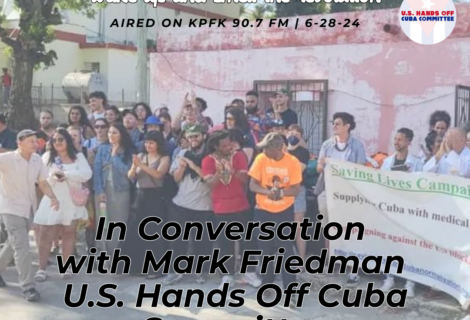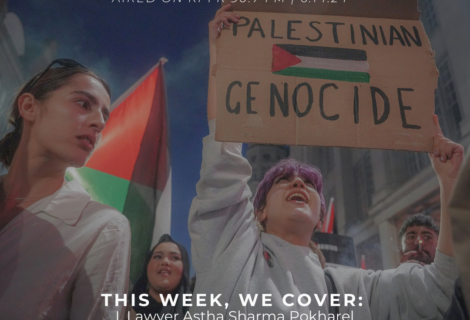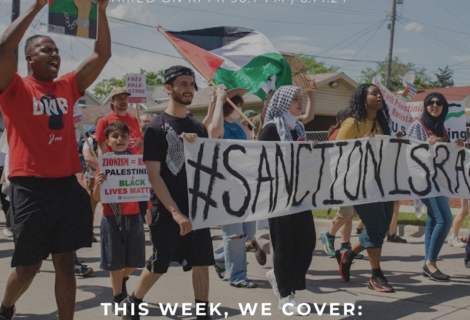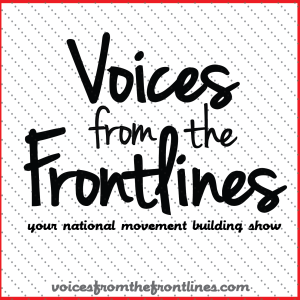Self-Care, Organizational Care, and Movement-Building
This article was originally posted on Organizing Upgrade on October 8, 2012. It is part of the ongoing conversation on Self and Community Care on Organizing Upgrade.
The discussion in Organizing Upgrade on the relationship of self-care to movement-building, initiated by B. Loewe, has been very exciting. Props to B for putting out a clear point of view and encouraging this level of engagement.
Let me explain how I see the integration of “self-care” and “collective care.” In the quote B uses, Yashna Maya Padamsee says, “Talking only about self-care when talking about healing justice is like only talking about recycling and composting when speaking of environment justice.” But no one I know is only or even mainly talking about “self-care” isolated from the collective struggle—and in fact, way too often it is “self-care” that is urgently needed to keep comrades in the movement.
I, like so many of us who define ourselves as organizers, have been grappling with this subject my whole life. In my discussions with organizers, using Playbook for Progressives: 16 Qualities of the Successful Organizer, I talk about the qualities, “Generosity of spirit: takes good care of others” and “Self-sustaining: Takes good care of himself, herself.” I purposely wrote them one after the other because I felt that those of us who take good care of others often do not take good care of ourselves. In fact, when I talk to groups of organizers, and ask them how many would describe themselves as taking good care of others at least 90% raise their hand. And when I ask, “Takes good care of themselves” there is a painful silence and no more than 20% of the people raise their hands.
I have been in the civil rights, anti-war, and Left movements for more than 40 years. For the past 10 years I have battled health problems and too often, have “treated” them but basically worked right through them. At one point, a co-worker told me, “Eric, you work like an ox.” I am deeply impacted by Marge Piercy’s poem, “To Be of Use” and felt “ox” was a complement, but came to realize I was putting too much burden on my own shoulders. During that same period I was very supportive of others taking more time off from work for yoga, body-work, nutrition, therapy. Today, I have decided I have to place my health first, because if I do not do so my body will break down and I will not be able to work at all. But also, and I don’t think this is self-indulgent, I don’t just see my life as just defined by my work. Now, to be clear, I do believe what we do with our lives for the larger society is the main purpose in life. I have been in organizations all my life and cannot comprehend a life “alone.” But while the movement work is what gives my life its greatest meaning, I also love 2 hour intense yoga sessions, running on the treadmill where I clear my mind of all clutter and I’m breathing so damn hard I can’t think—which feels great. It makes me feel good—and creates a healthier core from which I can approach my family, my friends, my movement colleagues and comrades, and my work—where there is of course tension but also a lot of times when the work itself feels good as well. Even more importantly, I am working with so many young organizers to really take care of themselves. In Playbook I talk about psychotherapy, yoga, meditation, and so many other modalities, and I’m convinced that somatics, body-work, are essential tools for movement building and individual survival. Today, I spend a good deal of my time helping organizers get medical, chiropractic, psychiatric, yoga, meditation, counseling opportunities and often have to work with them just to go to the doctors even when they have great medical coverage. The lack of self-care is to me, a component of national and gender oppression, where the culture dismisses those modalities. It is also a reflection of young people who care so much about their communities, many of whom are from working class families of color, have gone to college, and feel they “owe” their parents and their community so much they want to work as hard as they can. All this is good, but…
So many times when I am working with bus riders and young working class organizers their life stories are heartbreaking—depression, body pain, self-hatred, weight issues, diabetes, and as you know, so many working people have so many illnesses brought on by the alienation and horrors of capitalism. I absolutely agree that collective therapy is essential and primary—from Fanon to Freire, Mao to Boal, the collective liberation is the greatest cure for so many of society’s and people’s ills. And in my own organization, the Labor/Community Strategy Center, we have always been experimenting with “organizational mental health” and trying to bring positive energy to the collective struggle. But at the end of the day, people go home alone and wake up alone and the individual journey, the physical, psychological, and spiritual battle with the demons of our own and society’s making are battles we have to face individually.
After I wrote this, I was just talking with a very dedicated organizer who battles a lot of physical pain and who has great ties to the members. She was talking about fighting off depression because the problems of the people she organizes are so profound and painful that she can’t help but incorporate their pain into her own psyche and body, and is getting a lot of help from a holistic healer. Again, I see the integration of self-care and revolution as essential.
The election of Barack Obama was a great victory against the Right and presents great opportunities and challenges to our Movement–2.4 million people in prison, 1.2 million immigrants arrested and deported by the Obama administration in the past 4 years, the barbaric use of predator drones, and an escalating climate change that is moving at geometric speed. I think the “debate” among the mainstream candidates made it clearer than ever that we need to put a nail into imperialism. And as we debate and discuss larger strategies for movement-building, I think self-care is a critical piece of the puzzle.
Lastly, I think the dialectical integration of the individual and the collective goes to the heart of every viable theory of revolutionary change and is essential to a future socialism that we want to imagine. The state socialist revolutions have brought great progress to humanity and were the first breaks in the world front of imperialism. But the party and the state’s attacks on “the individual” were mechanisms of repression and often justifications for abuse, careerism, and suppression of different and competing political views. In any future society, the state, the political parties, the mass organizations, the trade unions, will have to speak for a great collective vision, and that vision will be built on individuals, one person at a time. As U.S. society is falling apart spiritually, economically and politically people’s lives and families are falling apart at the seams. Our movement can provide a vision of individual, organizational, and societal care and solidarity that can create the next stage of our revolutionary opportunity.






